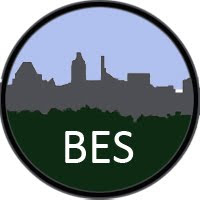This research was supported by funding from the NSF Long-term Ecological Research (LTER) Program. This material is based upon work supported by the National Science Foundation under Grant Nos. DEB-1637661 and DEB-1855277. Any opinions, findings, and conclusions or recommendations expressed in this material are those of the author(s) and do not necessarily reflect the views of the National Science Foundation.
The Baltimore Ecosystem Study has been a National Science Foundation Long Term Ecological Research (LTER) site since 1998. Visit other LTER sites.
 |
 |

EDI 2020 Summer Fellowship Program
https://environmentaldatainitiative.org ENVIRONMENTAL DATA INITIATIVE Follow EDI on Twitter: @EDIdatapackages and @EDIgotDataEDI Office Hours: Wednesdays, 3-4PM ET EDI Summer 2020 Fellowship Program EDI is excited to announce nine ecological data management training fellowships for the period 9 […]
Stillmeadow Peace Park is Baltimore’s Latest Tale of Urban Reinvention
Starting with an inspired vision from a parishioner and nurtured by an outpouring of collaboration, Southwest Baltimore’s Stillmeadow woods have been given a second chance. Read full article.
Rebooting our Warming Cities
A Hopkins-led team says better climate modeling and data can help Baltimore weather a hotter, stormier future. Read the full article here.
Green stormwater projects less likely in Black neighborhoods
Green stormwater infrastructure has long been cast as a win-win in big cities. But a recent line of research suggests that underprivileged communities are far less likely to see it. […]
UMBC to co-lead new Baltimore Social-Environmental Collaborative with $2.3M grant
The U.S. Department of Energy (DoE) is funding three Urban Integrated Field Laboratories including the new Baltimore Social-Environmental Collaborative (BSEC). According to the DoE, Urban Integrated Field Laboratories (Urban IFLs) […]
#BLTrees June: Equity and Access to Trees
Listen to The Brian Lehrer Show audio story featuring one of Baltimore Ecosystem Study’s founding researchers, Dr. Charles Nilon. He talks about his research and the intersection of trees and environmental […]
Higher Environmental Benefits To Be Had Where Homeowners Are Less Willing To Pay
“Although stream restoration filters pollutants out of local waterways and improves the health of the Chesapeake Bay, Baltimore area neighborhoods where it would do the most for water quality are […]
Broader Impacts of BES Research for Baltimore’s Parks & Golf Courses
A BES graduate student’s research led to the unveiling of a marker at a Black women’s golfing club that had helped to desegregate Baltimore’s parks and golf courses. From the […]
BES Founding Director Steward Pickett recognized with Frontiers Award
Cary Institute Distinguished Senior Scientist and BES Founding Director Steward T.A. Pickett with ecologists Lenore Fahrig and Simon Levin have been selected as recipients of the 14th BBVA Foundation Frontiers […]
Green Infrastructure & Equity – Discover Two New Tools + Virtual Events
Green infrastructure can help manage urban hazards, such as flooding, extreme heat, and toxic pollution while improving the availability and quality of urban green space. Across the US, cities have […]
The Benefits of the Urban Tree Canopy
Urban tree canopy provides many benefits such as cooling and air pollution mitigation. The extent to which individual trees contribute to these services depends on their species and size. However, […]